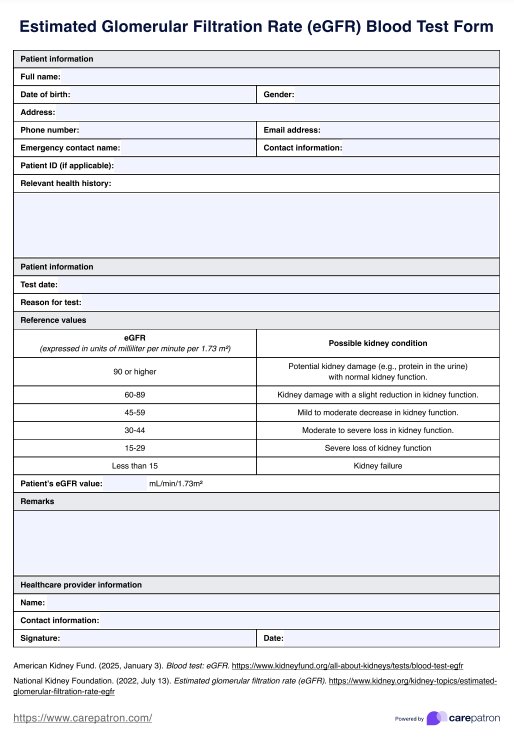It is part of the diagnostic process but should not be used to diagnose specific conditions. It should point to the possibility of specific kidney problems, and the tests that follow it should narrow things down and confirm the specific problem.

EGFR Blood Test
Make eGFR Blood Test documentation simple and efficient. Access our template to record patient results accurately and effectively.
EGFR Blood Test Template
Commonly asked questions
As with all blood tests, a patient might feel a bit of pain when the professional pierces the blood drawing site with a needle. There might be pain and discomfort afterward, lasting for a few minutes to a few hours. Some people don’t feel any pain at all. It depends on the person’s pain tolerance.
In rare cases, there might be an infection. Professionals account for this by applying antiseptics to disinfect and clean the blood drawing site.
Kidney function can be restored to normal levels with proper treatment and appropriate lifestyle changes. If kidney function can’t be restored to a certain degree, then the best thing that healthcare professionals can do is create a treatment plan that maintains current kidney functioning. Medication that slows or halts the progression of kidney disease will also be administered and prescribed.
EHR and practice management software
Get started for free
*No credit card required
Free
$0/usd
Unlimited clients
Telehealth
1GB of storage
Client portal text
Automated billing and online payments











